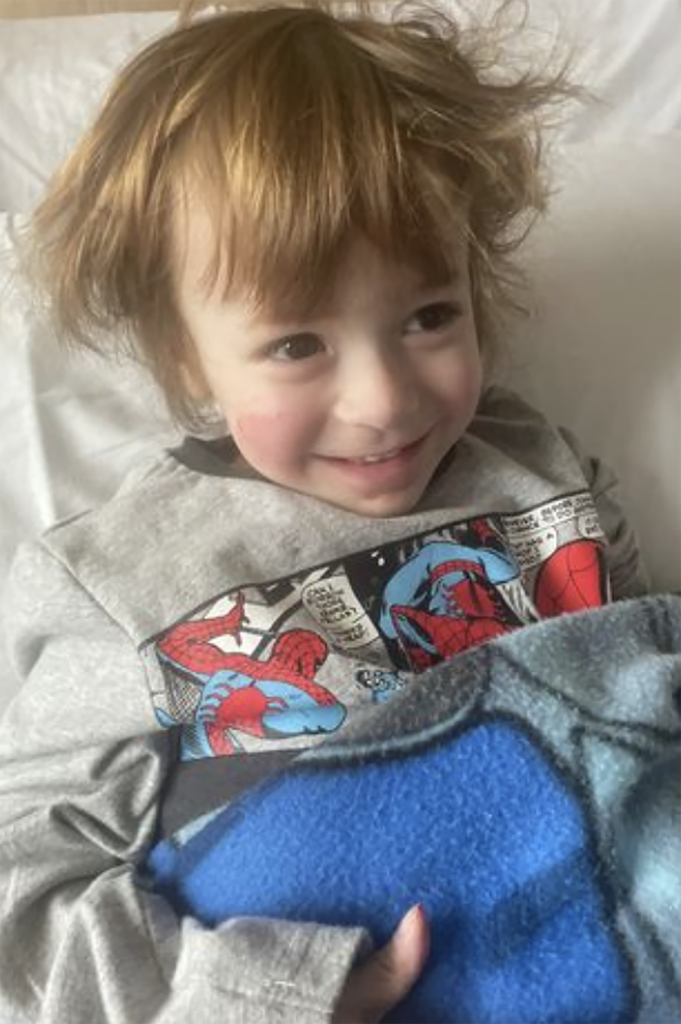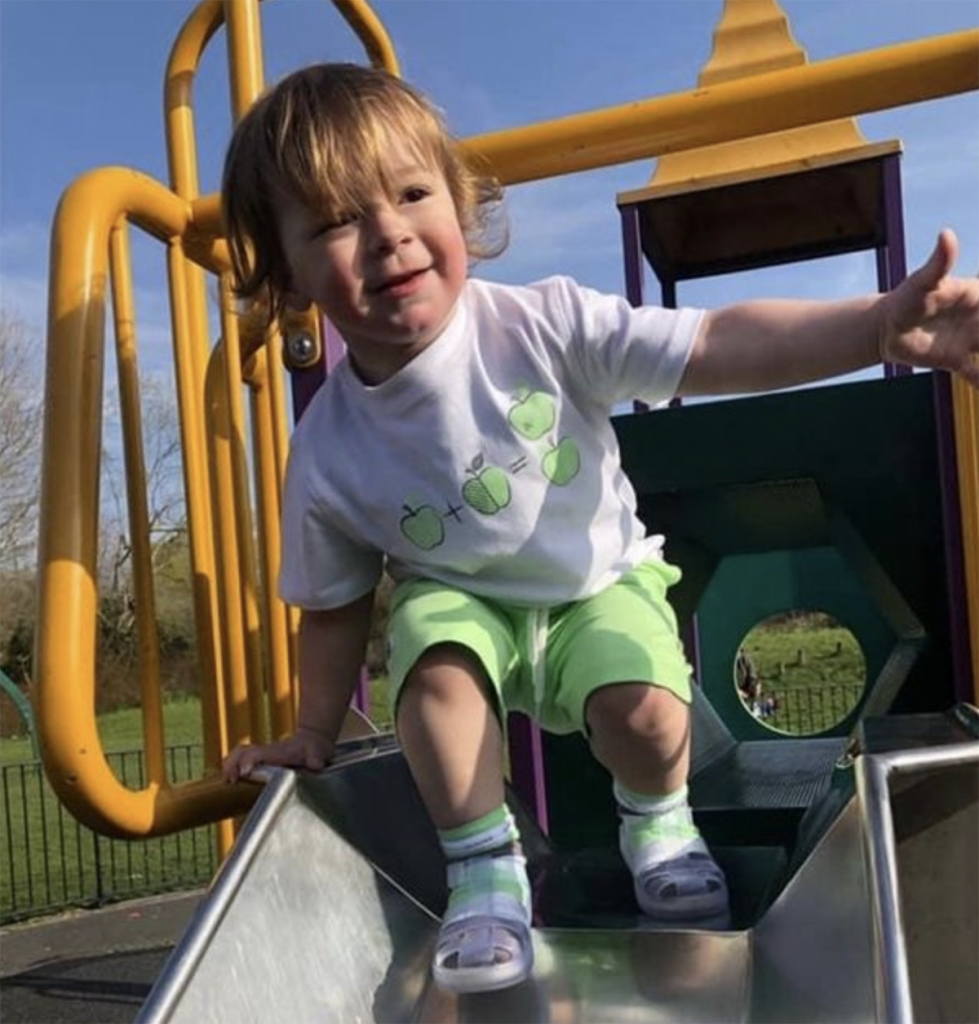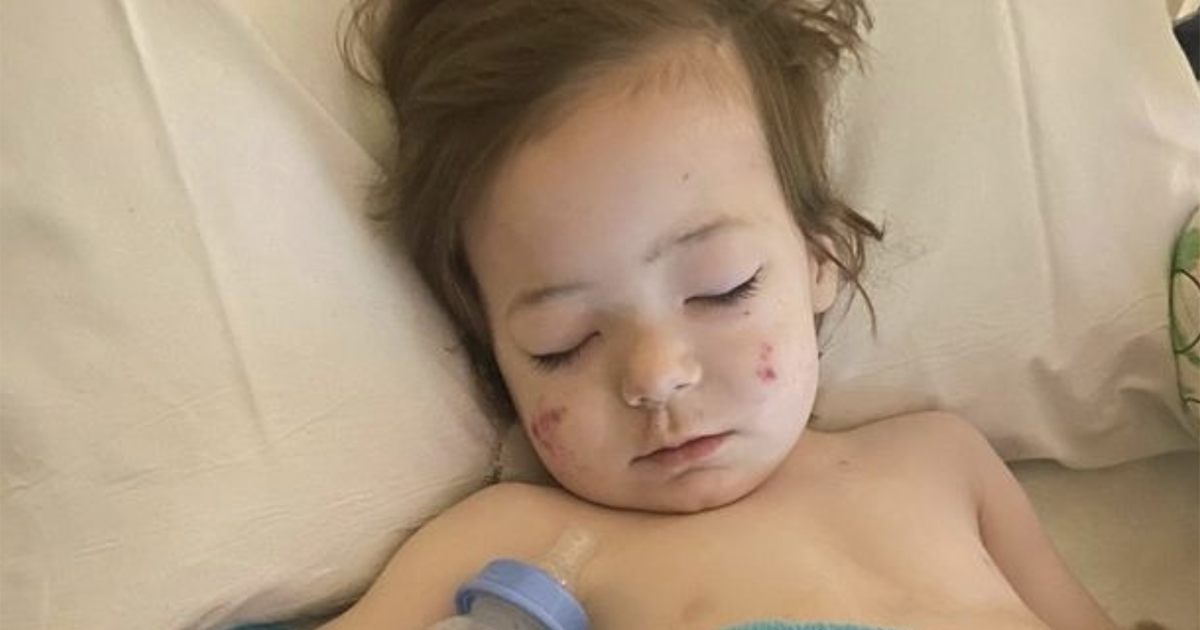How to Cope if Your Child is Diagnosed With Cancer
- A 2-year-old boy originally thought to have a "constipation" or a "viral infection" has been diagnosed with Wilms tumor, a type of childhood kidney cancer.
- Wilms tumor is a type of childhood cancer that begins in the kidneys and is the most common type of kidney cancer in children. About 9 of 10 kidney cancers in children are Wilms tumors.
- If your child is diagnosed with childhood cancer, it may seem like the dreams you have for your family are falling apart. It is important to try to keep a level head after you have fully felt all of your emotions around the diagnosis.
Now, little Jamie Clarke's family is speaking out to raise awareness for childhood cancer, as well as encourage others to "always go with your gut instinct," highlighting the importance of advocating for yourself in the medical system.
Read MoreJamie's Kidney Cancer Diagnosis
When Ashley Hughes, 21, noticed a lump on the side of her son Jamie's stomach, she rushed him to the nearby children's hospital. Not thinking it could be kidney cancer, doctors suspected the 2-year-old boy had a "viral infection" because his glands were swollen; he was sent home.The next day, however, Jamie's father, also named Jamie, 24, took him back to the hospital because something was not right.

"The next day, his dad noticed this lump again and he wasn't happy so he took him back to Alder Hey (Children's Hospital). They said it was constipation and again it could be his glands,” Daniels says.
"Ashley brought Jamie to my house on Sunday and he didn't look (like) himself," Daniels adds. "He was very gray and white, he wasn't sitting properly in his pram and he couldn't really walk."
Back in the hospital, little Jamie had his blood drawn, which showed that he had anemia, a condition in which you lack enough healthy red blood cells to carry enough oxygen to your body's tissues. But this is only when the bad news began.
The toddler spent the night in the hospital for observation and more testing. Further tests revealed that he had a tumor that was 11 centimeters in length and 8 centimeters in width; he also had cysts on his kidneys.
"They (doctors) didn't know if it was benign or cancerous at this point," Daniels says, adding that the amount of tumors little Jamie had posed a threat: doctors were concerned that a biopsy could cause them to burst open.

However, on Jan. 7, little Jamie underwent an eight-hour surgery to remove the tumor and the kidney. This is when Jamie's family was told that he had a Wilms tumor.
Wilms tumor, according to the American Cancer Society, is a type of childhood cancer that begins in the kidneys and is the most common type of kidney cancer in children. About 9 of 10 kidney cancers in children are Wilms tumors.
Little Jamie's operation was a success, but he still has to undergo six months of chemotherapy and radiation treatment before he can be deemed free of kidney cancer.
How to Cope if Your Child is Diagnosed With Cancer
If your child is diagnosed with childhood cancer, it may seem like the dreams you have for your family are falling apart. It is important to try to keep a level head after you have fully felt all of your emotions around the diagnosis. But it is also important to feel all of those emotions that come along with receiving a childhood cancer diagnosis.
The Value of Using a Social Worker During Treatment
As a parent, remember that you are not alone in this journey; your child's oncologist and care team are there to guide you and provide information and answers. Oncological social workers are a fantastic resource to help you sort out the financial aspects of cancer treatment, as well as other cancer-related issues. Skilled psychologists and counselors can be accessed to help you maintain good mental health through your child's cancer journey, to the best of your ability.
And do not be afraid to reach out to your support system friends, family, etc. for help through this process. No one expects you to handle everything on your own.
Contributing: SurvivorNet staff
Learn more about SurvivorNet's rigorous medical review process.


